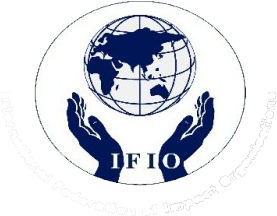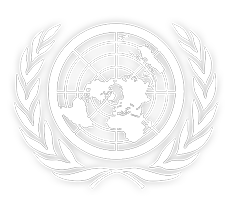History
The United Nations International Year of Disabled Persons (IYDP) 1981, drew attention to the fact that one in ten of the world’s people were disabled, one third of whom were children and the majority lived in developing countries. One of the consequences and challenges was recognition that, by harnessing modern knowledge and technology, the capacity existed to prevent or alleviate many of the causes of disability, often at minimal cost. For the first time in history, the time had come when mankind had the knowledge and power to defeat many disabling diseases.
Towards the close of this UN International Year, as part of Britain’s contribution and at the suggestion of Sir John Wilson, an international expert group of scientists, doctors, health administrators and politicians was convened by the British Department of Health and Social Security at Leeds Castle under the chairmanship of former Prime Minister, Lord Home. Their brief was to consider practical measures to prevent disablement and they called for decisive action.
«Avoidable disability is a prime cause of economic waste and human deprivation in all countries, industrialised and developing. This loss can be reduced rapidly. A programme of action to prevent disablement is a logical and essential part of the follow-up to the IYDP. It would ensure that the next generation did not suffer from the present degree of avoidable disability, and would constitute a most appropriate, effective and long-lasting contribution to the health and happiness of mankind.»
– Leeds Castle Declaration 12 November 1981
The prevention aspect of disablement was also included as one of the major components and objectives of the World Programme of Action Concerning Disabled persons, adopted by the 37thSession of the UN General Assembly. It was recognition of the scale of this problem that led the UN and its Member States to declare 1983-1992 as the UN Decade of Disabled Persons.
Sir John and Lady Wilson, together with a group of committed people, worked hard to raise awareness, financial and other resources from governments, civic authorities, the corporate and voluntary sectors and to promote opportunities to prevent needless disability at an international level. Following Sir John’s presentation of the Leeds Castle Declaration to the UN General Assembly, in a spirit of inter-agency collaboration, the United Nations Development Programme (UNDP), World Health Organisation (WHO) and UNICEF joined together in late 1982 to establish IMPACT as “An international initiative against avoidable disablement”, with Melissa Wells as the first Director, working from an office at WHO in Geneva.
In order to stimulate action, Sir John identified priorities and motivated like-minded people in a number of countries, including the United Kingdom, to come together in the formation of national IMPACT organisations; each has shared aims, local trustees, is autonomous and registered in its own country.
Collective targets for action include:
- Early identification and treatment of disabling conditions
- Affordable, accessible surgery
- Safer motherhood and child survival
- Ending “hidden hunger” caused by micronutrient malnutrition
- Immunisation
- Active ageing
- (Prevention of trauma was later added)
The global launch and inauguration of the first project took place in New Delhi, India on 2nd October 1983. IMPACT India Foundation was established in 1984 and this was closely followed by the “Polio-free Madras Campaign in 1985 the Bombay Fights Disability” programme and “Cure on Wheels” mobile clinic. The “Lifeline Express” hospital train began work in 1991 and has continued to take specialist care over the vast rail tracks to many parts of India.
Thai ear surgical teams, led by the dynamic Chairman of IMPACT Thailand used pioneering mass treatment techniques to restore hearing in rural areas and undertook training and surgical missions in Kenya. In later years they were to expand their outreach to China, Myanmar, Laos, Cambodia and Vietnam. IMPACT Thailand also developed a portable audiometer as part of a national programme to halve hearing loss amongst children.
The African IMPACT Programme was inaugurated in Kenya in 1985 and marked by a regional seminar and film to create public awareness. Further project activities in these early days focussed on the prevention of occupational, traffic and domestic accidents, the establishment of a mobile ear treatment unit and four eye/ear care centres.
Later action in Africa was to encompass surgical and teaching missions in Zimbabwe, work to combat guinea worm disease in Mali, the provision of equipment and facilities such as the Fistula Unit at Selian Hospital, Tanzania, and the South African Conference on Basic Surgery, which led to a training programme for a new generation of Orthopaedic Clinical Officers, able to perform about 60% of routine and emergency surgery in rural areas. IMPACT East Africa was launched in 2001 in order to develop and co-ordinate the programme in Kenya, Tanzania andZanzibar.
1987 saw the beginning of work to combat guinea worm disease in Mali and the first “Operation Cataract” project in the UK. This programme went on to challenge and change clinical practice in the National Health Service and became a model for nation-wide action. IMPACT UK also took a leading role in the National Rubella Campaign and more recently in promoting the “Neighbourhood Healthwatch” concept focussed on promotion of nutritional and cooking information, vegetable stalls and home gardening for vulnerable people.
IMPACT Philippines was established in 1990, with sight-restoring and screening projects and has continued to lead the way in developing successful community-based initiatives to fortify foodstuffs, distribute supplements, combat iodine deficiency and bring about better nutrition and food security. In addition they have instigated an ear care programme and established two ear surgery centres.
The second Leeds Castle International Conference, hosted by IMPACT UK in 1991, reviewed progress and set a challenging future agenda.
IMPACT Foundation Bangladesh was registered in 1993 and immediately began an ambitious programme, initially focussing on the reduction of micronutrient malnutrition in Chuadanga District. This rapidly expanded to the establishment of a district-wide campaign to prevent and alleviate disability, radiating out from the Masudul Haque Memorial Community Health Centre, which has been in operation since 2002. Later, the Sir John Wilson Assistive Device Centre was added. IMPACT’s flagship, the “Jibon Tari” floating hospital was built in Dhaka and launched in 1999. Subsequently, it has taken surgery, treatment and training to remote areas along the waterways.
A primary ear care project marked the beginning of action which led to the formation of IMPACT Nepal in 1993. This was rapidly followed by surgical and treatment camps in remote areas, where the equipment, including a novel tented operating theatre, has to be transported over difficult terrain, establishment of a primary ear care centre, a micronutrient supplementation project and later action to cut the high incidence of maternal and child mortality.
IMPACT Forum Norway was set up next and has, like the UK IMPACT Foundation, concentrated on technical transfer and resource mobilisation. IMPACT Foundations in Sri Lanka andPakistan concentrated initially on ear care, but both became involved in emergency assistance and rebuilding of health care facilities following the disasters caused by the Tsunami (2004) and earthquake (2005).
An international Seminar on Ageing “New Age for Old Age” was organised in France in 1996, in order to draw attention to opportunities to help break the link between ageing and disability.
With technical support from IMPACT India a new Lifeline Express hospital train was built and launched in China during 1997 as part of the handover celebrations in Hong Kong. Three similar trains are now operating in China, delivering cataract surgery to thousands of people.
The Asia-Pacific Council was established with a mandate to develop IMPACT’s structure throughout the region. Supporters in Hong Kong hosted its Conference in 1998.
«It would be a realisable objective over the next ten years to reduce by at least a third the incidence of avoidable disability throughout the region and to bridge the gap between what is possible and what has so far been achieved.»
The Hong Kong Declaration, March 1998
With the death of Sir John Wilson, IMPACT’s founder, in 1999, the IMPACT family lost its touchstone, but was, by now, strong enough to continue his vision. At a meeting in Geneva, 2000, sponsored by WHO, representatives of many countries came together to reaffirm priorities and to plan for the future.
Each IMPACT project began in a small way, geared to local needs and opportunities, aided by dedicated volunteers, determined to “Take action today, to prevent disability tomorrow”. These successful models have been replicated and now, in Bangladesh, East Africa, India, Nepal and The Philippines, projects have been brought together in comprehensive action, encompassing many of IMPACT’s priorities. Such a holistic approach is not only appropriate, but also cost-effective with economy of scale.
PolioMeet 2000 in India was the stimulus for renewed action to promote immunisation and to find ways of cutting the vast backlog of young people with post-polio paralysis, by restoring mobility and enabling them to live independent lives.
The growing IMPACT family continues to work at international, national and local levels in close partnership, sharing knowledge and resources in pursuance of our aims. The IMPACT Federation succeeded the Asia-Pacific Council, with its first meeting hosted by IMPACT Foundation Bangladesh in 2002. Subsequent meetings have taken place in New Delhi 2003, Nairobi 2005 and Cebu, The Philippines 2007.
The year 2000 also saw the launch of IMPACT’s first major international project, the creation of a hearing aid which could be mass produced and distributed at low cost and was also cheap to maintain. This was in response to the huge unmet need and involved collaboration between IMPACT UK, Project IMPACT US, Lions Clubs International and others.
Image of Claire Hicks, Co-Founder UK IMPACT Foundation
Claire Hicks, Co-Founder UK IMPACT Foundation
IMPACT Foundations, partners and support groups are now established in Bangladesh, Denmark, East Africa, Eastern Mediterranean Region, Hong Kong, India, Nepal, Norway, Pakistan, Sri Lanka, Thailand, United Kingdom and United States of America. We warmly welcome the latest Foundation in Cambodia.
In over twenty years together we have facilitated over 20 million interventions in 33 countries. We shall never know how many people have not become disabled as the result of our action, since they will never be counted amongst the harsh statistics. We do know, however, that the lives of tens of thousands of men, women and children have been transformed. They can see, hear or move easily, go to school, work or care for their families. Equally, many more in this and future generations will have been empowered with information to protect themselves and their communities.
We ask, therefore, to be judged not on our aims along, but on our track record and the impact we have made on people’s lives.
Through the reduction of needless disability, IMPACT is making a valuable contribution to the prevention and alleviation of a prime cause and consequence of poverty and to the Millennium Development Goals; helping to make the world a better place for people menaced by disease, disability and poverty.
IMPACT has ambitious future plans. We know what we want to do and how to do it. The need is challenging, the opportunity huge.





